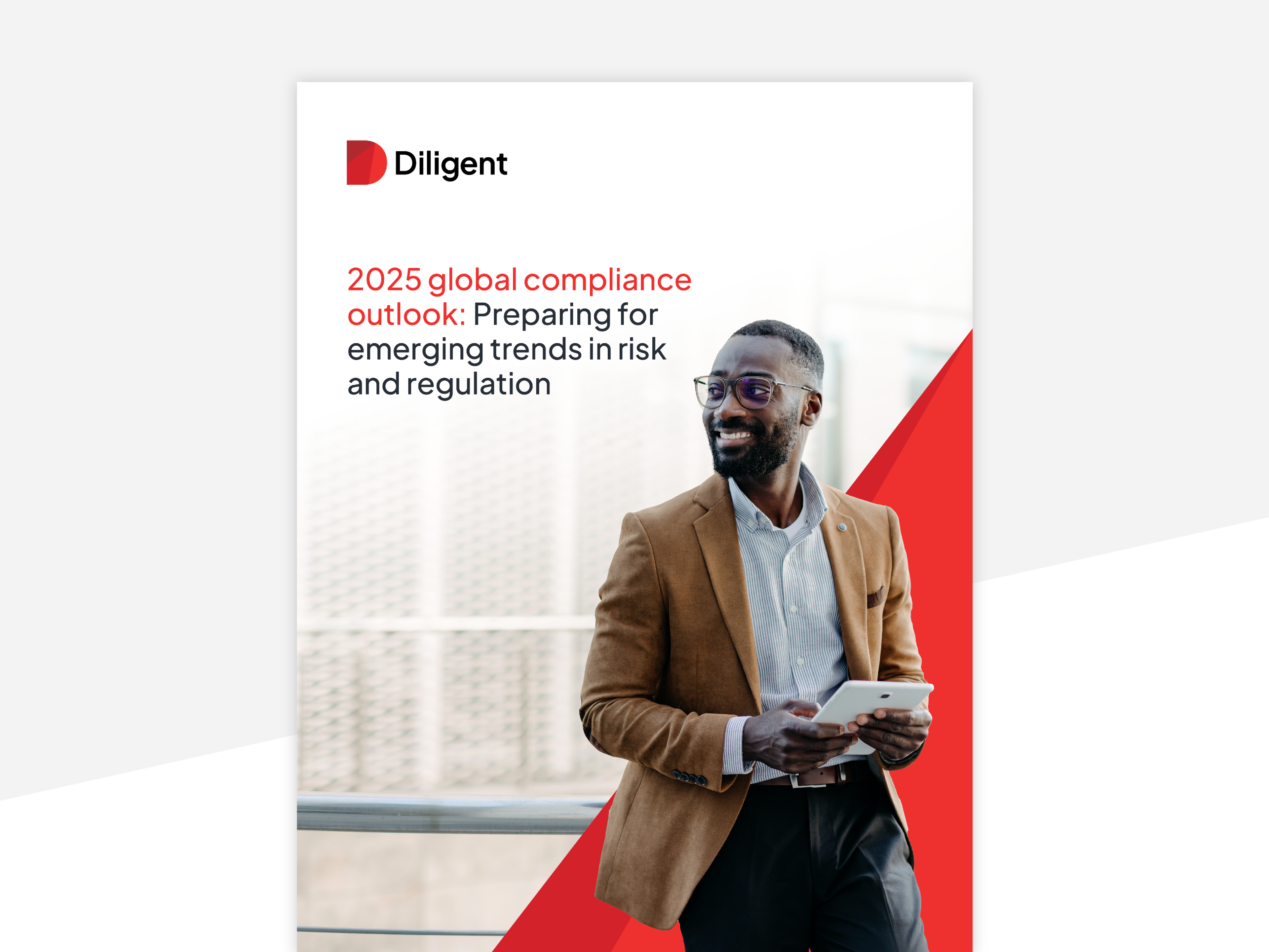
Navigating regulatory changes and compliance in trade and data privacy
Innovation comes in many areas, and compliance professionals must be ready for and embrace it. Join Tom Fox, the Voice of Compliance, as he visits with top innovative minds, thinkers and creators in the award-winning Innovation in Compliance podcast.
This episode is part two of a three-part series sponsored by Diligent. Listen as Stephanie Font, Director for Operations Optimization Group at Diligent, discusses navigating regulatory changes and compliance in trade and data privacy.
Guests

More about the podcast
Compliance amidst shifting sanctions and trade policies: Essential strategies for dynamic times
In today's rapidly changing global trade environment, compliance professionals face a constant barrage of evolving economic sanctions and shifting trade policies. Recently, I had the opportunity to sit down with Stephanie Font, Director of Due Diligence at Diligent, to discuss how companies can best navigate these turbulent regulatory waters.
From monitoring to mastery: Staying ahead of sanctions and regulatory shifts
One of the central themes of our conversation was the necessity of vigilance. Economic sanctions and trade policies, particularly under the Trump and Biden administrations, have demonstrated unprecedented volatility. Compliance teams must proactively monitor and adapt to these changes to maintain seamless operations.
According to Font, staying informed is not merely advisable, rather it is fundamental. Compliance officers need reliable, up-to-the-minute data streams from trusted sources, whether from subscribing to regulatory agencies' updates, partnering with services like Diligent, or tuning into dedicated compliance podcasts.
The landscape has certainly become more complex, with regulators broadening their enforcement criteria. For instance, Font highlighted recent shifts at the Bureau of Industry and Security (BIS), which now includes specific addresses on their entity lists, a significant departure from the traditional focus on names and broader locations.
The implication for businesses is profound: companies must now scrutinize not just who their partners are, but precisely where they'relocated, down to the building level. This granular attention can make the difference between compliance and costly violations.
Embedding compliance into the core of business decision-making
Yet compliance today goes far beyond merely reacting to sanctions updates. Font emphasizes the importance of embedding compliance directly within core business operations. Questions such as "Who are you doing business with?" "Where are they operating?" and "What goods and services are exchanged?" should not solely reside within the compliance function, they need to become foundational business questions.
Compliance must collaborate closely with operations, procurement, and legal teams to integrate these inquiries naturally into everyday business decision-making processes.
This integration is particularly crucial when addressing recent moves such as the designation of certain Mexican cartels as Foreign Terrorist Organizations (FTOs). Such designations carry almost strict liability for businesses inadvertently engaged with front companies or shell corporations associated with these cartels. Here again, Font advises that due diligence must evolve beyond surface-level checks.
Companies must become adept at identifying anomalies, such as sudden spikes in orders or shifts in the types of products purchased. These indicators can serve as vital early warnings, prompting deeper dives to uncover potentially problematic connections.
Dynamic due diligence: Moving beyond periodic reviews
The era of periodic, static due diligence, conducted merely at the initiation or renewal of contracts, is undoubtedly behind us. Instead, compliance programs must adopt dynamic triggers for initiating due diligence. Font recommends shifting away from purely calendar-based approaches toward responsive, event-driven reviews. Factors such as new product orders, changes in contacts or company representatives, and unexplained shifts in transaction volumes must trigger fresh assessments. Such agility ensures companies are prepared to respond quickly and effectively to emerging risks.
Moreover, compliance programs must increasingly consider data privacy and cybersecurity within their risk assessments. Font points out that data privacy breaches and cybersecurity vulnerabilities pose substantial risks, encompassing not only regulatory consequences but significant reputational damage as well. Companies must thoroughly understand their exposure based on industry specifics and regional regulatory landscapes. Proactive due diligence should ascertain whether third parties have robust privacy policies and adequate cyber defenses in place.
Finally, compliance professionals must remain sensitive to growing global concerns around human rights, exemplified by regulations like the Uyghur Forced Labor Prevention Act (UFLPA). This Act mandates scrutiny beyond simply checking entity lists. Companies must deeply investigate their supply chains, particularly within high-risk regions, to assure human rights standards are upheld.
In conclusion, compliance today is not merely about keeping pace; it's about embedding comprehensive, proactive strategies deeply into business operations. The compliance function must become nimble, responsive, and integrative, providing continuous oversight and insight into emerging risks. By adopting these practices, companies can not only mitigate compliance risks but also enhance their competitive advantage in an increasingly complex global marketplace.
Keep exploring

Preparing for sanctions under a second Trump administration
Read our blog to learn how the potential policy direction of the second Trump administration is placing attention back on sanctions.

How to lessen the sting of U.S. sanctions & export violations
Learn how to mitigate the impact of U.S. sanctions & export violations. This article examines two cases, highlighting best practices & consequences of non-compliance.

2025 global compliance outlook
Download our 2025 global compliance outlook to confidently navigate complex regulations, enhance risk management and secure your company's future.
